
Read our 2023 annual report

Knowledge Hub
Gender inequality in South Sudan is shaped by prevailing cultural norms
Harmful gender norms as a result of a patriarchal culture have left women in South Sudan marginalised and even excluded from participating at any level of decision-making or political activity. This is especially true in the countryside, which tends to be even more traditional.
Women have few decision-making powers within the household or land ownership rights. They also lack access to water and livestock, as well as loans. The lack of resource ownership and land rights is at the heart of power imbalances between men and women.
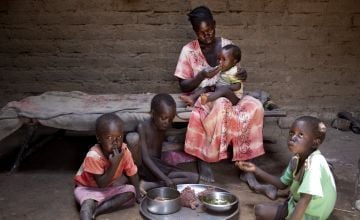
There’s a direct link between gender inequality, poverty, and hunger
Land in South Sudan is predominantly owned by men, who are also favoured by inheritance practises. Even when women can access land, the fact that they aren’t able to own it discourages many from investing time and resources into sustainable farming practises.
Many women are unable to even find time and resources to invest. This means that many women are responsible for the majority of their family’s unpaid and domestic labour and those who have time to devote to farming or an alternative livelihood see low returns on that investment. This means less income and less food for their household. (Cultural practises mean that women are also likely to eat last at mealtimes, meaning that they feel this setback multiple times over.)
The biggest challenge to gender equality is a lack of awareness
Part of this comes down to a simple lack of awareness. For many South Sudanese — men and women — the idea that these traditions and mindsets are harmful has never been considered.
It’s an achievement that gender equality has begun to be discussed as a priority in South Sudan. However, while action towards this is well-intentioned, it has, until recently, lacked focus. Short-term efforts are unsustainable; we need the right resources and a systematic plan for lasting change.
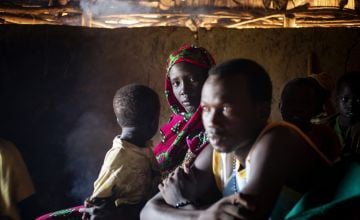
Gender-based violence is driven by a culture of silence and stigma
According to a 2019 report from UNICEF, GBV is one of the most critical threats to the health and safety of women and children in South Sudan. Concern’s own work on gender equality in South Sudan confirms this, with surveys indicating evidence of rape, physical and psychological abuse, and denial of both education and economic opportunity. In surveys, we’ve also found that domestic violence is widely accepted: 82% of women and 81% of men agreed that 'women should tolerate violence in order to keep their families together.'
Unfortunately, this is enabled in part through cultural norms, which favour silence over stigma. There are currently no reliable statistics for gender-based violence in South Sudan, though one recent study cited by USAID suggests that, in conflict-affected areas of the country, 65% of women and girls have experienced some form of gendered violence.
South Sudan has some of the highest rates for forced marriage and maternal mortality
Another form of gendered violence, forced or early marriage is a likelihood for nearly half of all South Sudanese girls. Current statistics show that 45% of girls were married before their 18th birthday. For 7%, their marriage took place before they turned 15.
Likewise, South Sudan has the fifth highest maternal mortality rate in the world: 1 in 7 women will die due to complications during pregnancy or childbirth. This is largely due to an infrastructure crippled by nearly a decade of conflict, which has led to an underdeveloped healthcare system and a severe shortage of skilled healthcare workers — especially for obstetrics and gynaecology.
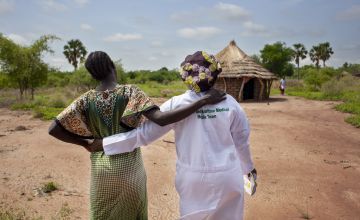
Climate change and conflict increase gender inequalities
Women and girls experience the intersection of climate change and conflict in South Sudan in direct and profound ways. Since they are often the ones responsible for providing food, water, and energy for their families, they face greater challenges in accessing these resources. Climate change has had an outsized impact on South Sudan, most recently with the largest flooding in Unity State in nearly 50 years.
Conflict, however, adds to the insecurity, as many women and girls face increased risks of violence and insecurity carrying out basic tasks. With greater social capital, men often have greater options for coping with the stresses of instability. Violent conflict tends to exacerbate existing inequalities and vulnerabilities.
Change needs to happen locally, but supported nationally
Since South Sudan gained independence in 2011, there have been improvements in national policy and laws on gender equality. Many of these recognise the historic inequalities between women and men. However, old habits are hard to break. However, South Sudan's ongoing crisis has left the country without a functioning government structure, meaning that the gains made in gender equality so far are not sustainable. The South Sudanese infrastructure and legal system both need to be strengthened in order to promote an inclusive agenda, take on cases of abuse and exploitation, and hold perpetrators accountable.
Men have to be enrolled as advocates and allies for gender equality as well, including sharing childcare duties, fostering stronger family cohesion, and supporting their wives, daughters, and other women in their lives as equals rather than inferiors.
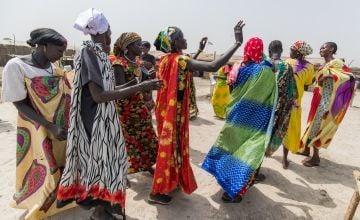
Gender equality in South Sudan: What Concern is doing
Gender equality is important to our work in ending extreme poverty. We won't achieve one without the other.
Between 2017 and 2021, Concern South Sudan ran an integrated health and nutrition programme aimed to improve the health and nutrition of vulnerable women and children in both Aweil West and Aweil North counties. Much of this project focused on gender equality and gender transformative programming as key to the success of our work.
At the community level, activities were geared towards improving key healthcare practises and promoting behavioural change by tackling the issues of inequality head-on. Women were supported by Mother Support Groups to act as drivers of change, while men were coached as change agents to be more engaged in the wellbeing of their families. Over 2,400 Mother to Mother Support Groups were formed, with over 1,450 Lead Mothers. An additional 526 Male Change Agents participated.
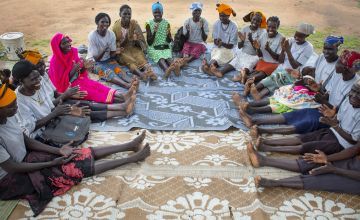
Midway through the project, we saw that the number of households in which women were consulted in key areas of decision making increased from 17% in 2017 to 45% in 2019 in Aweil West, and from 16% to 44% in Aweil North. Collective resource mobilisation through Village Savings and Loans Associations (VSLAs) encouraged economic empowerment for women. We also saw significant reductions in acute malnutrition at the midway point, from 17.1% in 2016 to 12.7% in Aweil West, and from 19.2% to 12.5% in Aweil North.

